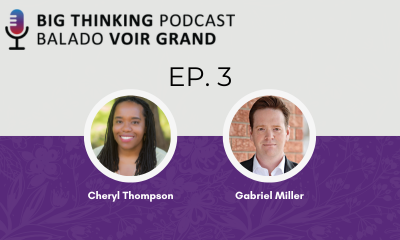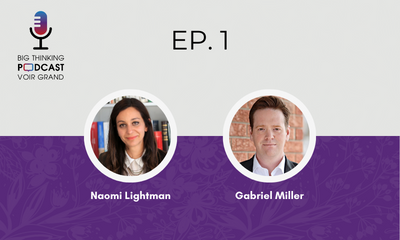Big Thinking with Will Kymlicka
Perceptions of humanity and of membership: Two challenges of inclusion and exclusion in Canada
Various groups in Canada are stigmatized in ways that make them vulnerable to discrimination. In some cases, this takes the form of dehumanization: a perception that members of the group are somehow deficient in humanity, and hence not owed the universal human rights that arise from our common humanity. In other cases, members of a group may be seen as deficient in their commitment to Canada – as fully human, but not fully Canadian – and hence not deserving of the citizenship rights that attach to being a full member of society. This Big Thinking lecture will explore both forms of stigmatization, discuss their powerful effects, and identify the distinct challenges each raises to the Canadian model of diversity.
Will Kymlicka holds the Canada Research Chair in Political Philosophy at Queen’s University, focusing on issues of democracy and diversity, and in particular on models of citizenship and social justice within multicultural societies. He has published nine books and over 200 articles, which have been translated into 34 languages, and was recently awarded the 2019 Gold Medal from the Social Sciences and Humanities Research Council of Canada. He is co-director, with Irene Bloemraad, of a new CIFAR program on Boundaries, Membership and Belonging, which brings together leading scholars to explore how the boundaries of social and political membership are drawn in the contemporary world.
Respondent: Yasmeen Abu-Laban, Canada Research Chair in the Politics of Citizenship and Human Rights, University of Alberta.
Presented in partnership with CIFAR.

Navigating Canada's immigration and education nexus
← Big Thinking Podcast homepage Next episode → Description | About the guest | Transcript | Follow us Description In this episode, we’re exploring a topic that has grabbed headlines across Canada over this past year – the cap on international...

From the Jheri curl to TikTok: Canada and the global business of Black beauty
← Big Thinking Podcast homepage Next episode → Description | About the guest | Transcript | Follow us Description Every day we are bombarded by words and images telling us what we should find beautiful, and what we should aspire to look like. Black...

Who cares for the caregivers?
← Big Thinking Podcast homepage Next episode → Description | About the guest | Transcript | Follow us Description Who cares for the caregivers? is a question too important to ignore especially after the COVID-19 pandemic exposed how our society...
